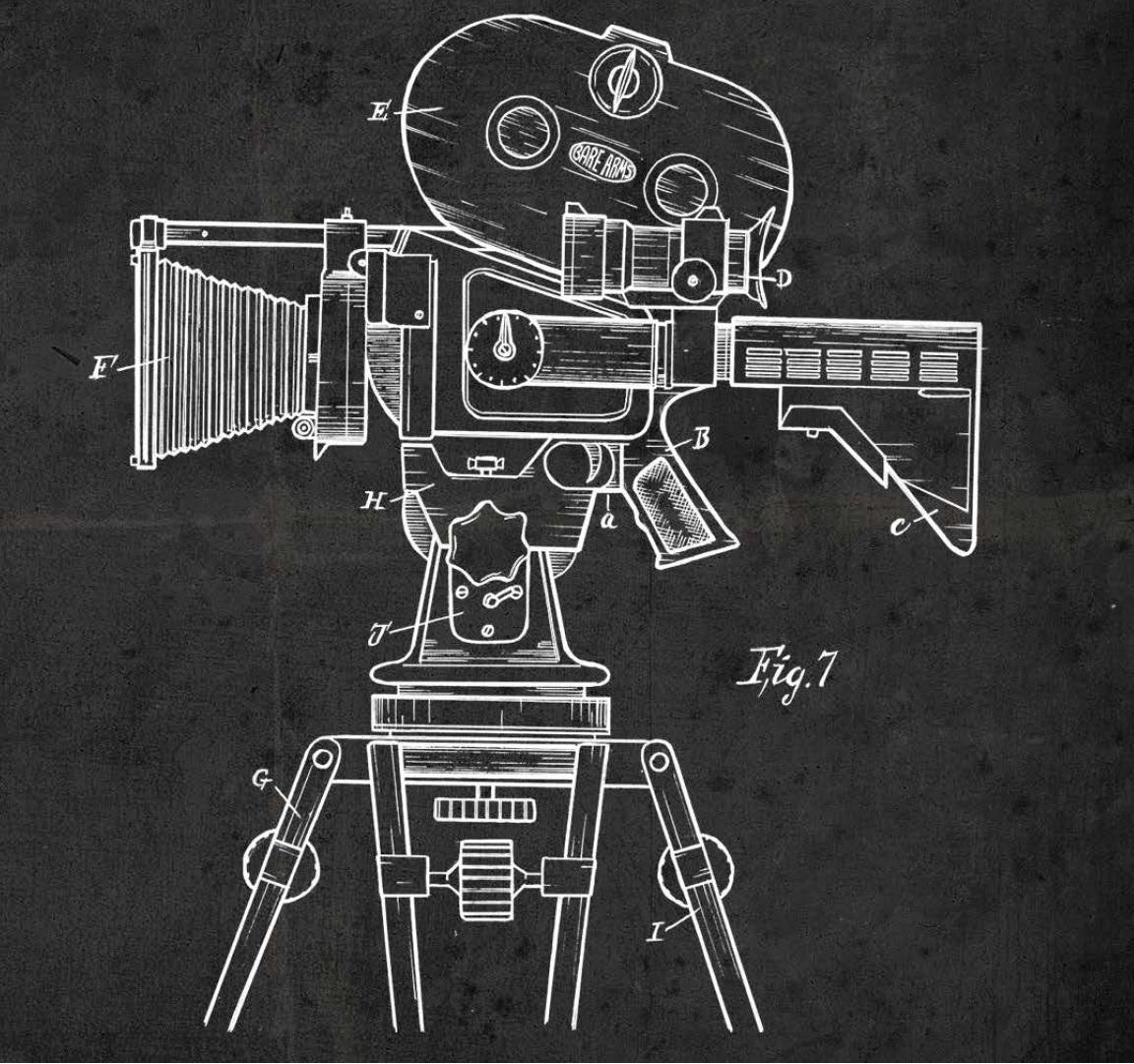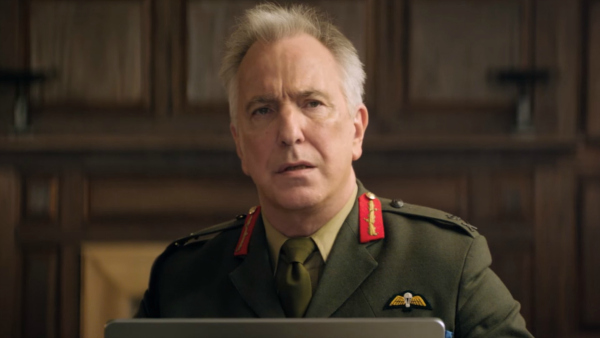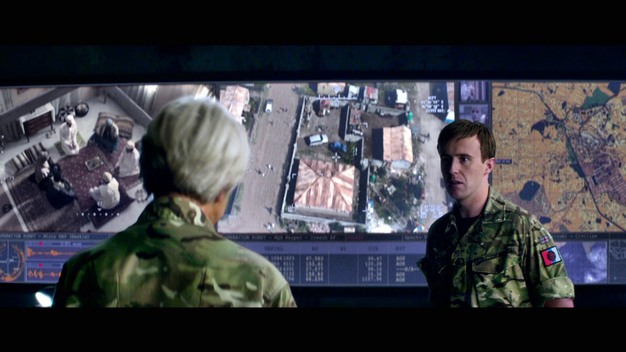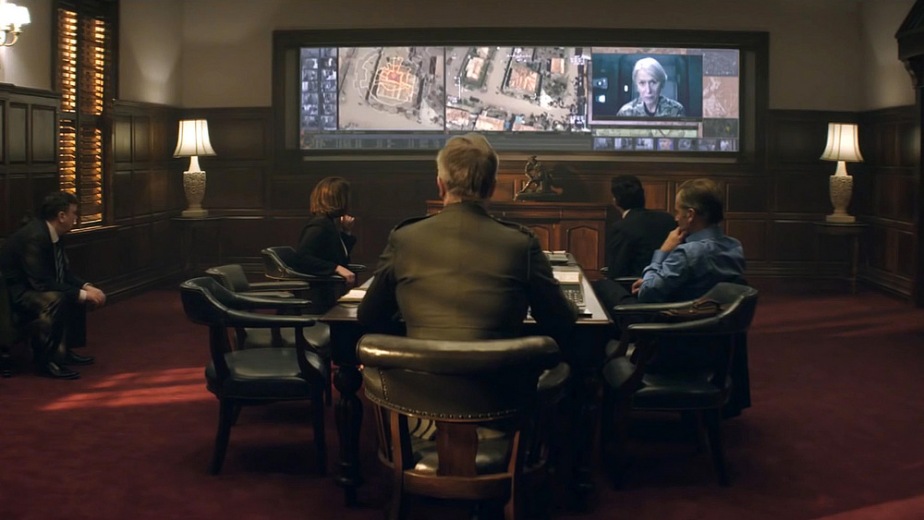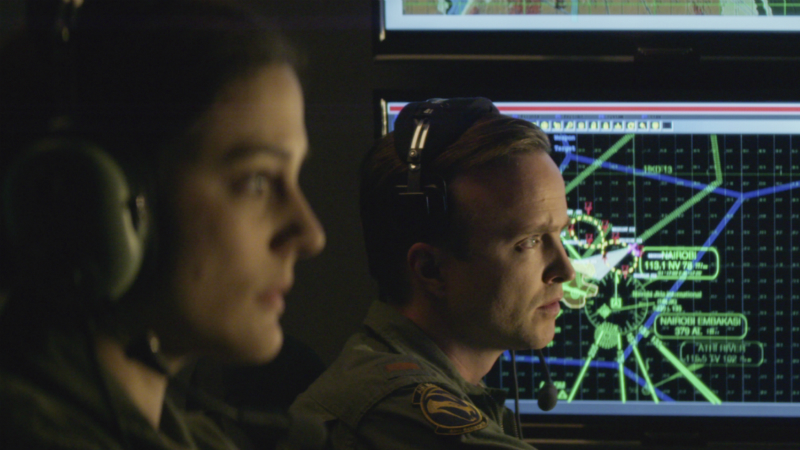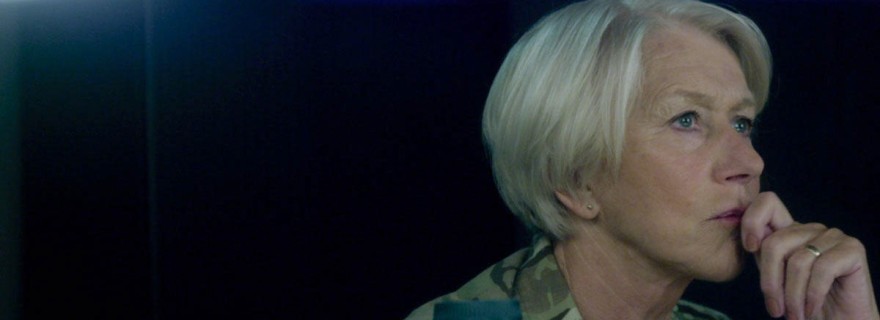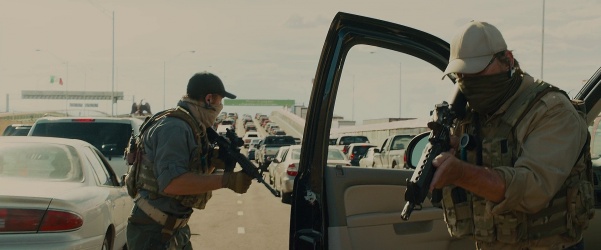Quality script and good acting, with an authentic story to boot. So why does it all seem so familiar? ‘Sand Castle’ is destined to be one of those films that’s unappreciated in it’s lifetime due to an overexposure of the conflict, but in 20 years time might just be heralded as a highlight of the genre.
Netflix has been creating its own content for a while now, but recently it has started to churn out war films. Not big sweeping epics like we saw in the 60’s and 70’s, such as ‘The Battle of Britain‘ and ‘A Bridge Too Far‘, but little films about amazingly true stories that are as yet unknown.
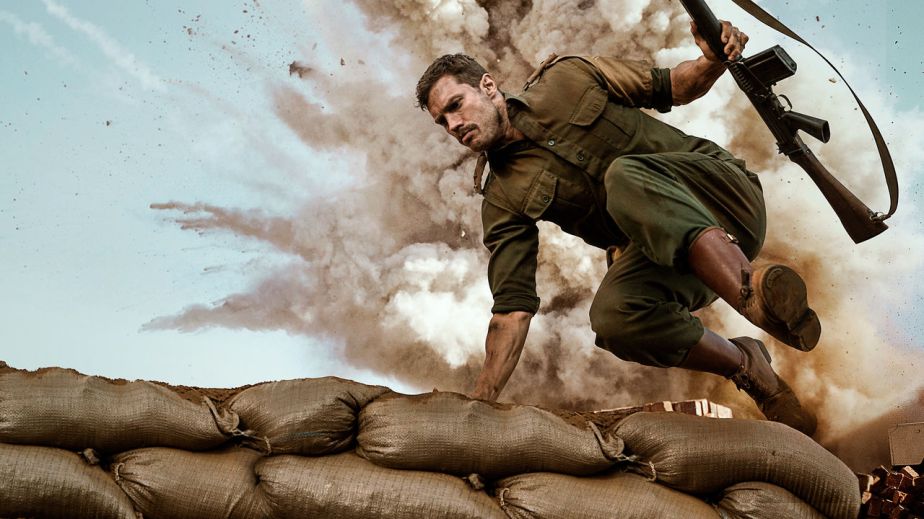
‘The Seige of Jadotville‘ told the story of an Irish U.N. peacekeeping mission in Africa that went disastrously wrong whereas ‘War Machine‘, due out later in the month, is a satire on the American war in Afghanistan. Both are based on true events and both attracted some serious acting talent. Netflix seems to be scooping up scripts and pulling in actors, whilst dedicating enough budget to make them look good as well.
‘Sand Castle‘ is no different in these aspects, however if anything its story is even smaller and therefore far more personal than most war films. It is based on the experiences of the writer Chris Roessner, who was deployed to Iraq in 2003 and highlights the impossibility of fighting small wars. It plays out like a less nihilistic ‘Jarhead’ combined with a more intelligent ‘Black Hawk Down’. Anyone who has ever lived in a patrol base within an indigenous population in the last 15 years will recognise the frustrations depicted in ‘Sand Castle’. A small army unit is attached to a special forces team in order to help distribute water and rebuild a damaged facility in an isolated town. A reluctant Private Matt Ocre is taken along for the ride.
For those of you that have seen it, the trailer is deceiving and in a way that is a huge relief. It makes it seem like the film is going to be primarily about Nicholas Hoult character’s reluctance to fight, whereas thankfully this merely serves as a contrast to the ending and doesn’t dominate the film like it does in ‘Fury‘ and others. It’s more of a starting point for the growth of Private Ocre as the story progresses, as his mindset changes from one of ‘get your head down and get through this’ to ‘I should be trying to do more’. Unlike ‘Fury’ (sorry!) this happens naturally over time and not in an unrealistic 24hr period or through a series of contrived events.
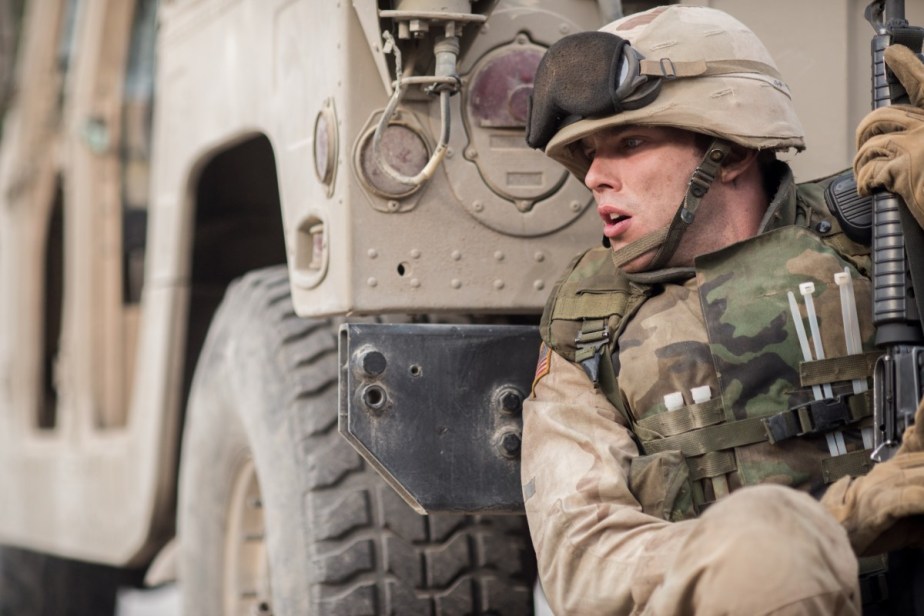
The trailer also suggests that Henry Cavill’s special forces officer is going to be a bit of a one-dimensional, all-action-hero and a bully, but thankfully they’ve avoided this cliche too. Captain Syverson is one of the better portrayals of an officer in a war film. He’s intelligent, passionate about what he’s doing and willing to listen to the ideas of others. He still swaggers around, chewing tobacco and swearing, but he’s respected and effective.
Now, I know what you’re thinking, “There must be a salt-of-the-earth, officer hating sergeant to round it all off? Someone to unnecessarily create conflict by being insubordinate?”. Nope. They didn’t do that either. Sergeant Harper, played by Logan Marshall-Green (the poor man’s Tom Hardy) is respectful and professional throughout. He’s the stoic rock of the film in a nicely understated way. “So what about the baddies? There must be big boss baddy right? Like ‘Blackhawk Down’?“. Wrong again. You barely see the shadowy insurgents. Just like in real life, they blend into the crowd.
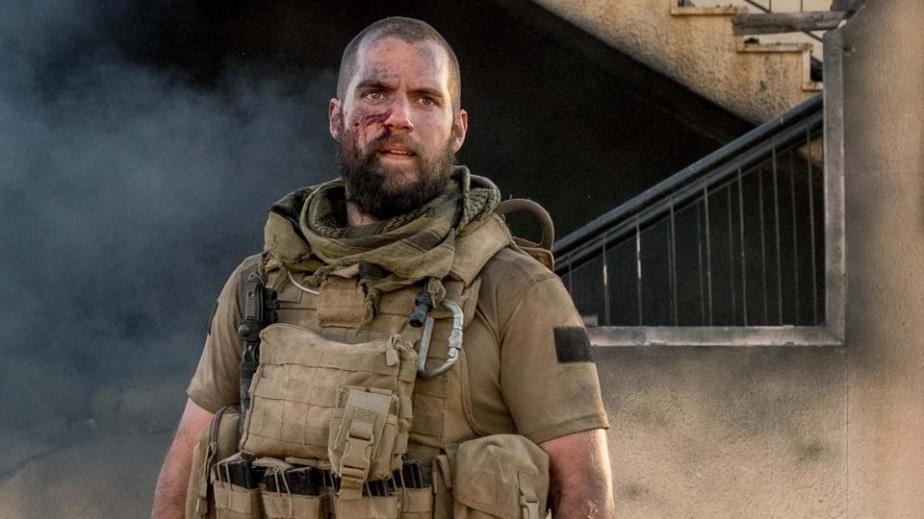
So if it isn’t about cliched character conflict, (which is the basis for most war films), what on earth is this film all about? Quite simply, it’s about the war itself. In this case the impossibility of fighting a tactical war, when your enemy is an unseen insurgent, and the commanders at a strategic level have little understanding of what’s happening on the ground. You want to help the local population, but they just want to be left alone. It is possibly one of the most realistic war movies to date. The action is quick and gritty, with the insurgents disappearing as quickly as they arrive. There are no long and drawn out set pieces here, just short and sharp confusing engagements. There’s little anguish when things go wrong. The soldiers just pick themselves up and keep on going. The mission, no matter how small and how insignificant in the bigger picture, is everything to them.
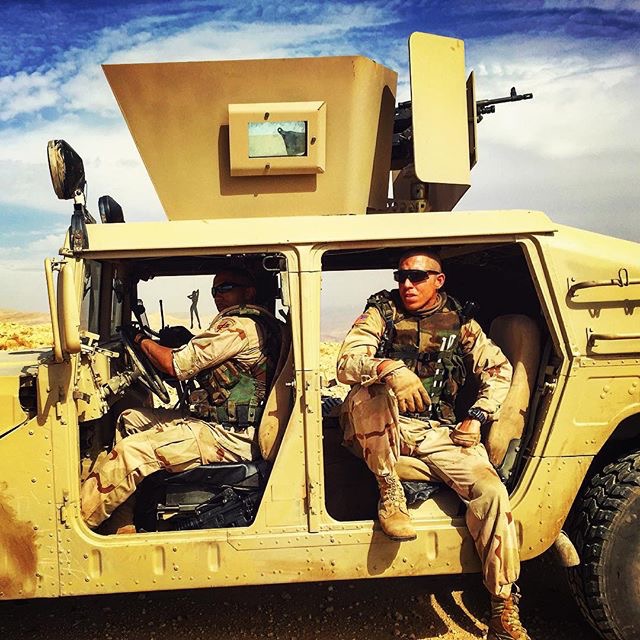
So is it any good? Armed with notepad and pen, we gleefully started jotting down the errors. Very old tanks that definitely aren’t Abrams. MRAPs vehicles that wouldn’t be introduced for another 5 years. A type of leatherman multi-tool that wasn’t invented until 2010! Oh the humanity! But then, very quickly we stopped taking notes. The acting was spot on, and the interaction between characters was perfect. Soldiers behaving like soldiers. If they were all a little uglier, then it would be even more realistic. Very quickly we got drawn into this little film, as it took us right back to our own experiences of war.
However, if you believe Rotten Tomatoes, then it would suggest you steer clear (47% at last check). There are complaints that it doesn’t have a message or an underlying theme, or that it’s a genre piece that produces nothing new. These opinions totally miss the point. ‘Sand Castle‘ is a deeply personal account of what it is like to be a pawn in a global war, where the rules and strategies being employed make little sense when you are faced with the realities of an insurgency. Not only that, but it was written by someone who has been there and lived through it. It may not seem ground breaking, but that’s because you’ve seen each of its scenes somewhere else, as a smaller part of a much bigger blockbuster. You’ve seen the tragedy play out on 24hr rolling news. Over the last 15 years, our senses have been dulled and our reactions blunted by a constant drip feed of similar hopeless stories. Some of us have had the misfortune to live through them ourselves.
This is one of the minority of cases where the critics are dead wrong. Don’t listen to them, listen to the soldiers.
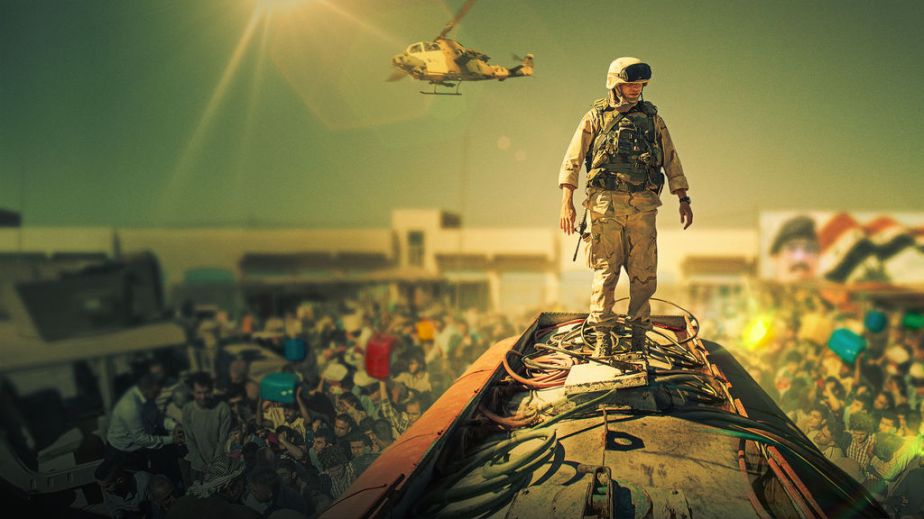
At this current moment, people are over-saturated and bored with war stories from the Iraq/Afghanistan era. It’s been going on for over a decade and a half and isn’t over yet. No matter how good a film about the period might be, its impact is reduced massively by over familiarity. The best WW2 films were made in the 70’s, nearly 30 years after the conflict had ended, and by that point, the collective memory was beginning to fade.
So, do one of two things. Either empty your head of all preconceptions, then sit down and really concentrate on this gem of a film, or forget it for 20 years and come back to it when the war in Iraq is (hopefully) a distant memory. Regardless, if you know anyone who has experienced war recently, and you want to know what it was probably like, this is a good place to start.
‘War Machine‘ is out on Netflix on the 26th of May. Watch the trailer here.
Follow Bare Arms on Instagram @barearmsfilm
